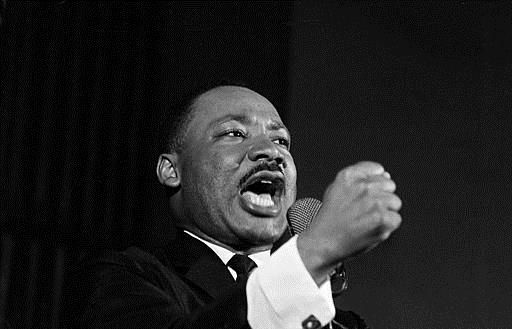HARLINGEN — The change initiated by Martin Luther King Jr. rippled across numerous sectors of society.
Certainly, the first purpose was to deal with the disenfranchisement of African Americans, said George McShan, who has served on the Harlingen school board since 1988.
Today, as the nation observes Martin Luther King Jr. Day, McShan and so many other Americans consider the influence of the civil rights leader. The significance of King’s movement is very strong to McShan, because he remembers how his life changed.
“We did not have the right to vote, we did not have the right to participate in the American democracy as the Constitution had so stated,” said McShan, who graduated from a segregated high school in 1965.
The Plessy vs. Ferguson decision of 1896 had ruled that blacks must attend schools that were “separate but equal.” However, in the 1950s the Supreme Court ruled schools must be desegregated with all deliberate speed.
That single word “deliberate” was the loophole many states used to drag their feet in desegregating the schools. McShan’s high school in Elgin, Texas, wasn’t desegregated until 1968. This occurrence appears especially peculiar considering the civil rights bill was passed in 1964 and the voting rights act in 1965.
Nevertheless, in spite of lingering inconsistencies and unanswered questions, opportunities suddenly opened for African Americans that had never before been available.
“I had an opportunity to go to college,” he said. “I was encouraged to go to college because we could vote, we could participate. The evolution of the Constitution was made whole. That was the intent of the forefathers all along. We were so excited about the opportunity, to be a full citizen.”
He refers to himself and others who lived in the 1960s and 1970s as the “first generation.” They had known the United States when they couldn’t vote and could not enjoy the same educational opportunities as others. Lack of education was necessarily a precursor to low wages.
That same generation also experienced the sudden change in their lives, in which Martin Luther King played a major role. McShan himself feels he has benefitted greatly from King’s influence. He later taught high school science in Brownsville and spent 19 years at Texas State Technical College as the dean of instruction. He was the first African American president of the Texas Association of School Boards. Many African Americans from the “first generation” took the same advantage of those.
Certainly, Martin Luther King would be proud of the influence he’s had on so many lives, right?
Unfortunately, that may not be the case. McShan feels today’s generation of African Americans has forgotten the significance of King’s legacy. They don’t remember the struggle. Furthermore, family values have declined.
“They do not know the history and do not appreciate the history,” he said. “Because of that appreciation, families were stronger back then. You didn’t have many single-parent families. Children today do not have a support system of family. What influenced people back then was your family, your education and your faith.”
McShan also expressed concern that people may be relying too much on programs such as food stamps, which are intended to provide temporary assistance. He said those are very good programs but emphasized the word “temporary.” He also feels that social media and peer pressure seem to influence young people more than families.
“I think Dr. King would be very disappointed,” he said. “Disappointed to the point that not enough of us are keeping that dream alive.”
However, while the movement may not have reached all its goals yet, the words can’t be erased, nor can the ideas they convey. That momentous day decades ago when Martin Luther King delivered his “I Have a Dream” speech on the steps of the Lincoln Memorial is firmly cemented in the country’s history — and in the minds and hearts of so many.
“I have a dream that one day on the red hills of Georgia the sons of former slaves and the sons of former slave owners will be able to sit down together at the table of brotherhood,” King said, his passionate voice resonating across the Washington Mall.
The principles he conveyed about equality for all people gave them relevance to all ethnic groups, McShan said.
“His dream was for all people,” he said. “There are gender issues. We look at what has happened for women, how they benefitted from Dr. Martin Luther King’s dream. We look at what has happened to equality for all people, even those who have different orientations.”
The bold permanence of King’s words is well illustrated in a powerful stone sculpture in Washington, D.C. On a cold January evening, Abraham Lincoln gazes stoically across the Washington Mall, white with winter snow.
To his right, sidewalks wind their way toward the Tidal Basin. Martin Luther King’s image seems even now to convey his power and passion, strong enough to move a nation.
He looks across the Tidal Basin to the Jefferson Memorial now lit with floodlights.
Behind him, a few blocks from the Washington Mall, stands the White House, on which African slaves did much of the labor. And there resides the nation’s first black president or, as McShan put it, an educated president who happens to be African American.




